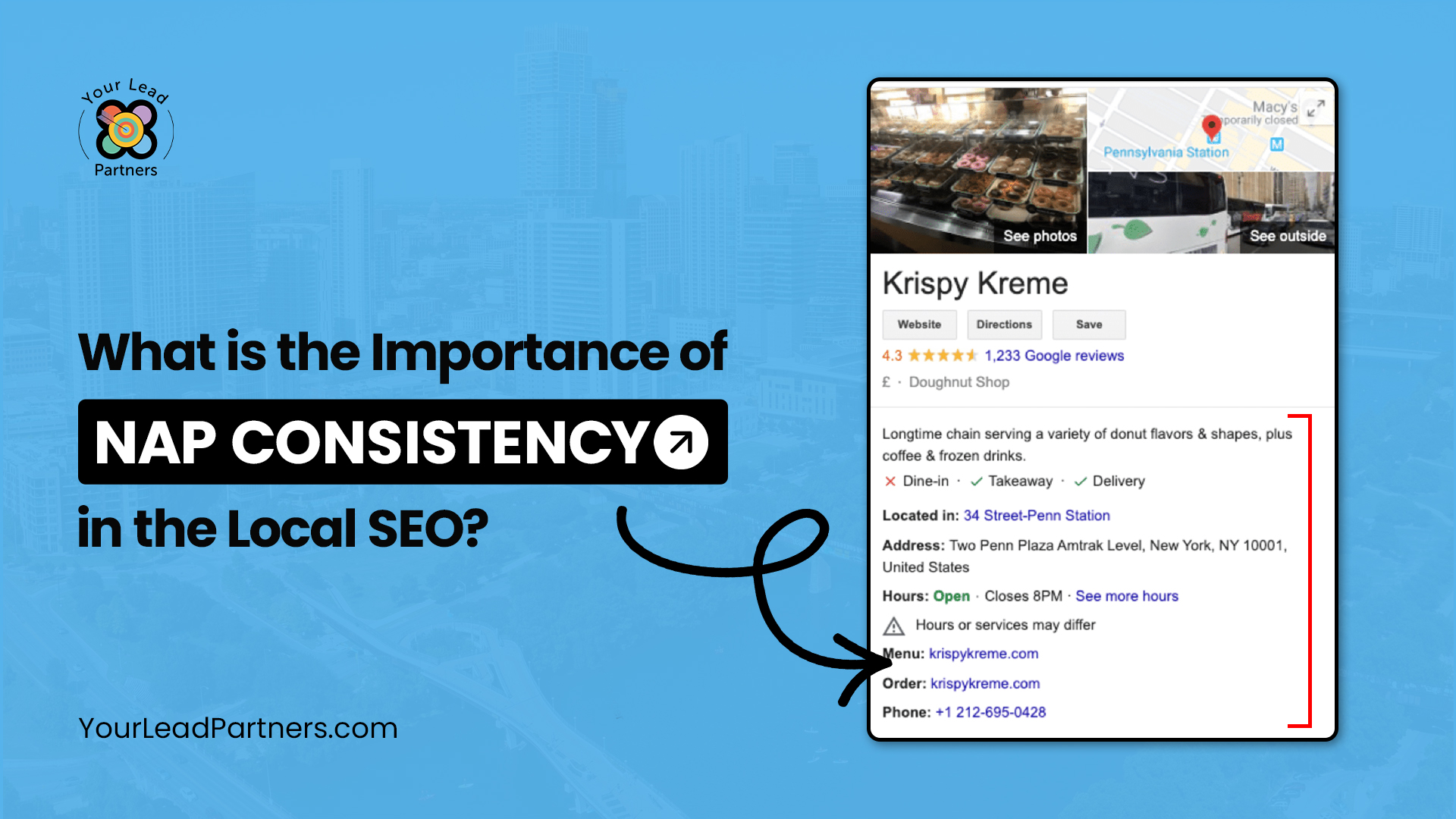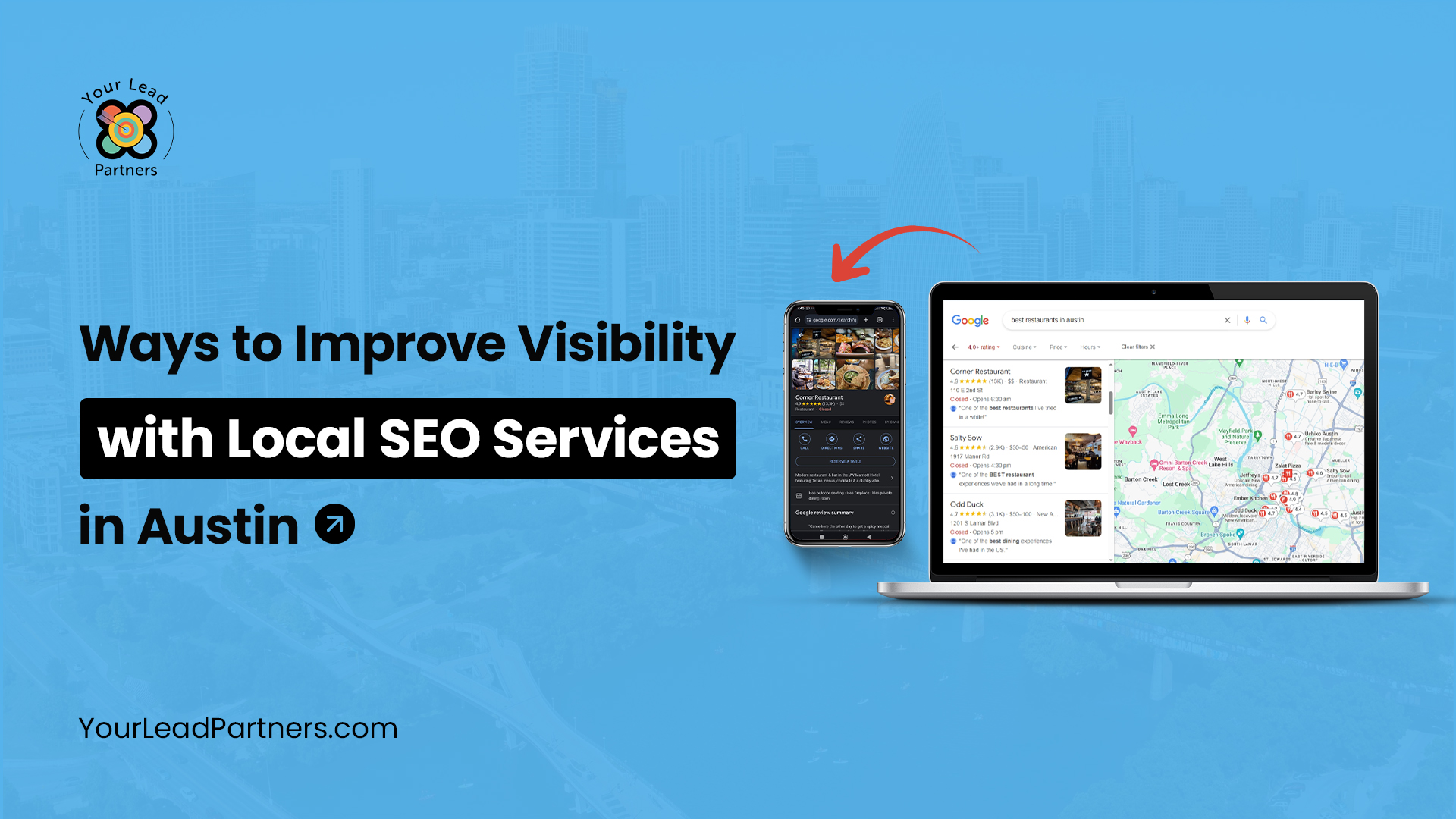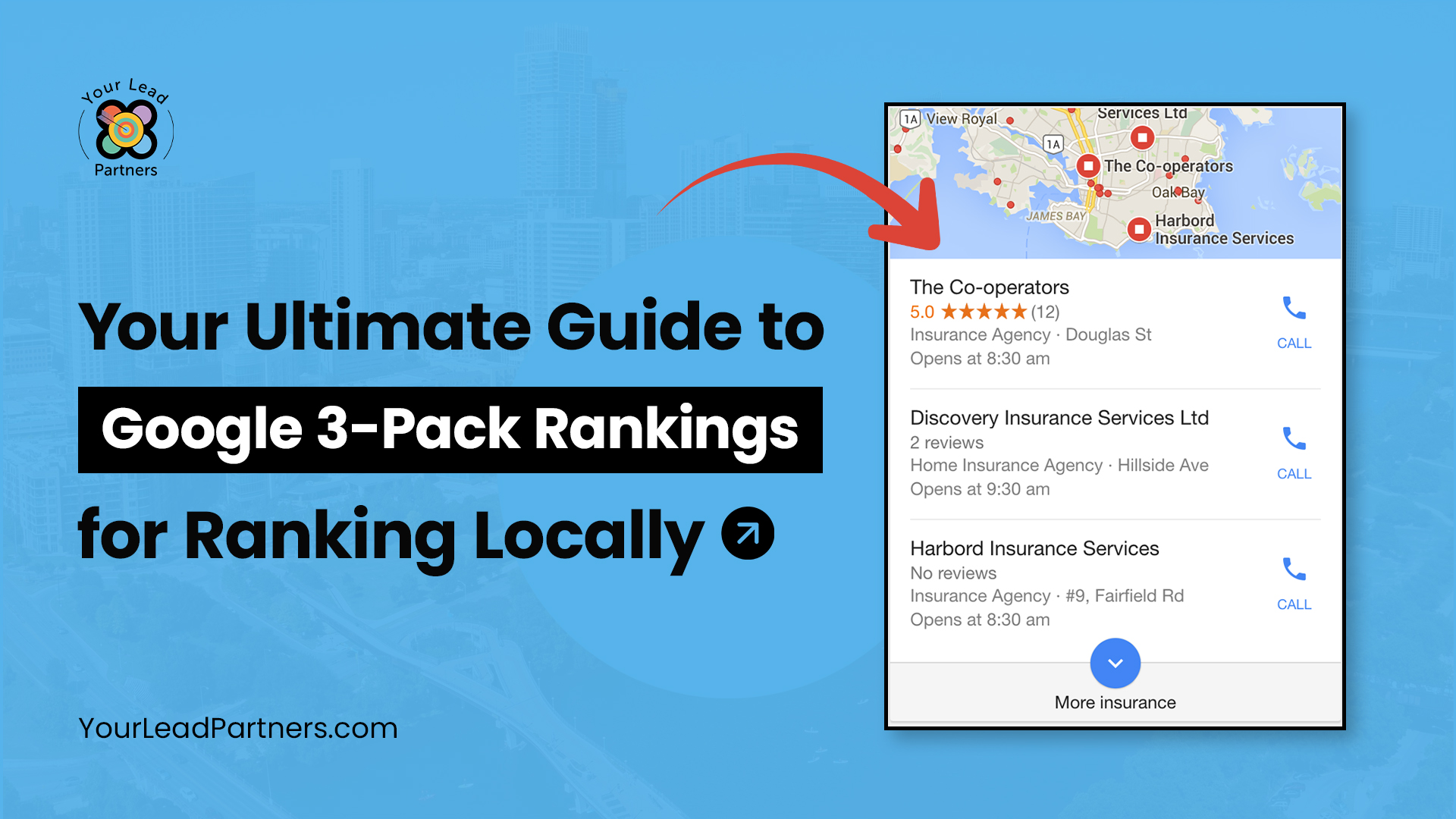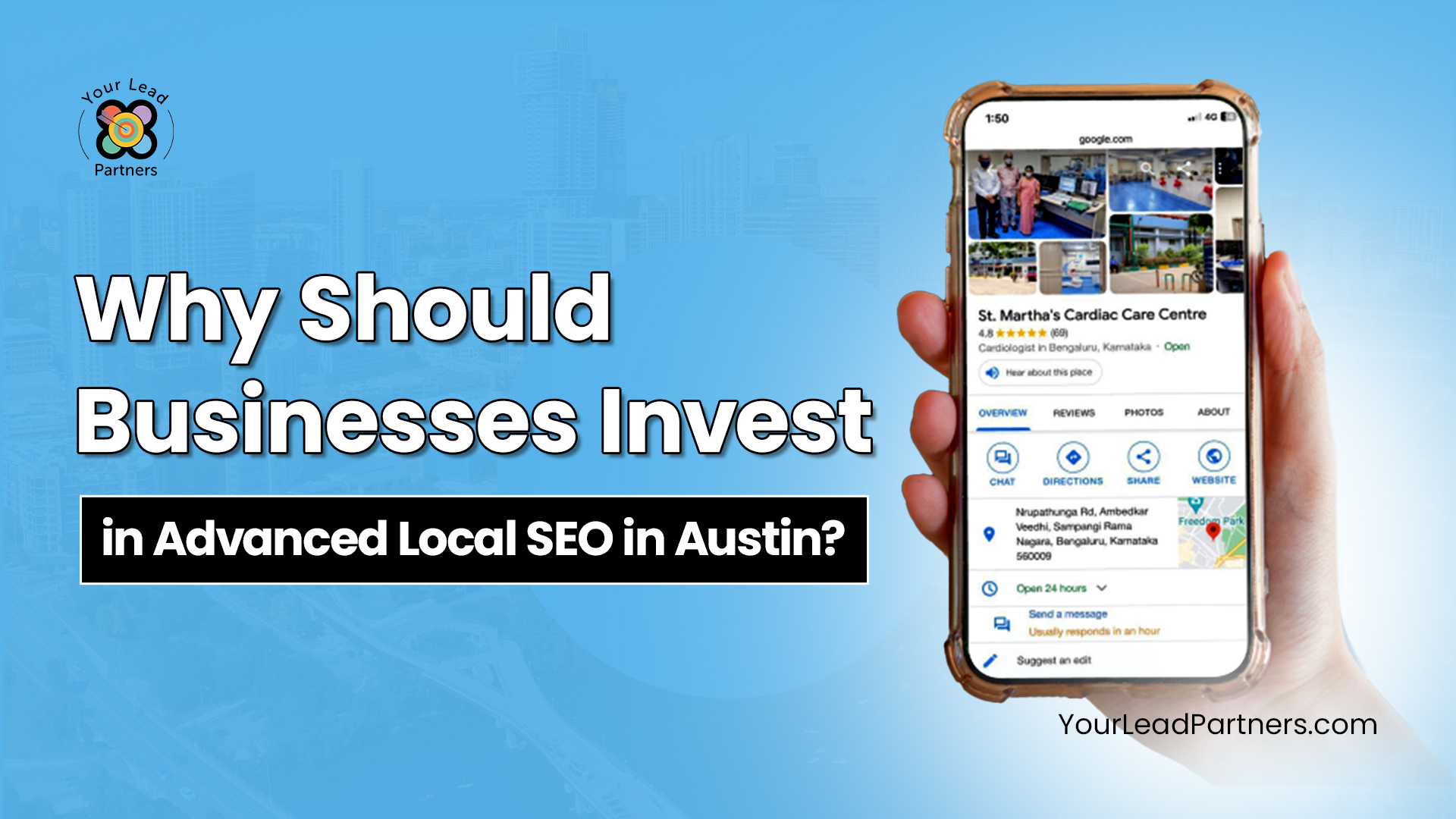Introduction:
Struggling to find ways to rank your Google My Business profile higher? Stop searching! In this article, we explain every piece of the puzzle we use to boost Google My Business listings.
In today’s digital age, ranking high on Google search results is mission-critical. Securing a top position on Google’s search engine results page (SERP) helps to:
- Boost organic traffic
- Generate leads, and
- Increase conversions.
Sound interesting? Here are effective strategies to help your business reach the top of Google searches.
Keyword Research:
Kick-start your journey to Google supremacy with comprehensive keyword research. Why are keywords so important, you ask? Remember, that keyword research plays a role in determining which keywords to target. Before you start working, you need to know what your potential customers search for in Google.
Start by identifying top-level keywords relevant to your business and target audience. You can use free tools like Google Keyword Planner. There are also paid versions, like SEMrush, or Ahrefs. These tools help you uncover keywords with high search volumes and reasonable competition.
Additionally, delve into long-tail keywords. Long tail keywords are more specific, targeted phrases. They tend to attract fewer, yet more qualified leads. These long-tail keywords typically have lower competition. This means they rank higher faster, which in turn helps your business stand out in search results. By focusing on long-tail keywords you can dominate your niche.
Important note: Use the keywords in a natural way in your company’s profile description. By that, we mean, incorporating a keyword into writing that sounds authentic. The description should not exceed 1500 characters. So, accuracy is key. Focus on the keywords you want to target.
Update your company’s details on Google My Business Profile
After keyword research, the next step is very important: updating your business profile. Why is it necessary? Let me explain.
Updating company details on Google My Business profile improves visibility and ranking. , Google’s job is to provide relevant information. When a user searches in Search or Maps, Google tries to provide the most relevant results. If you haven’t updated your profile, Google doesn’t know about you. The more Google knows about you, the more “authentic” you are and the more relevant your brand.
Google is the boss. If you follow Google’s rules and regulations, the boss will like you, and promote you. The good news is that Google is a very direct, clear, and simple boss. There are only three things that Google demands for your business profile.
- Accuracy
- Completeness
- Engagement
Let’s talk about these in detail.
- Accurate Information: This includes your business name, address, and phone number (NAP). Ensure information is accurate and consistent across all online platforms. Inconsistent information confuses search engines and potential customers. This inconsistency lowers your local search rankings.
- Complete Information: Provide comprehensive details about your business in your Business Profile. Fill out everything you can. Include business hours, website URL, description, categories, and services/products offered. Complete profiles perform better in local search results.
- Engaging Content: Create engaging and informative content for your Business Profile. This can include a compelling business description, attractive images, videos, and customer reviews. Engaging content captures potential customers’ attention, encouraging them to interact with your business. The more they interact with you, the more Google knows that your result was the correct result to display. And hence, a virtuous cycle.
Bonus point:
If you have more than one location, don’t worry. Google My Business provides a “bulk upload” feature.
How does Google Rank local businesses?
Google’s local search results derive from three main factors: relevance, distance, and prominence. These work together to provide the most relevant and useful results for a user’s search query. Here’s an explanation of each factor:
Relevance:
Relevance refers to how well a business listing matches a user’s search intent. Google analyzes various signals to determine a business’ relevance to a search query. These signals include the business name, category, description, website content, and customer reviews. The more a business’ content aligns with the user’s search terms, the more relevant.
Distance:
Distance plays a significant role in determining local search results. Google aims to show businesses that are close to the user’s location. This is particularly relevant when there is clear local intent (e.g., “cleaning sBut near me”). Distance is not the sole factor, though. Google also considers keyword relevance and search prominence. So a business that is relevant, but further away, will still appear.
Prominence:
Prominence refers to the online reputation and visibility of a business. To determine a business’s prominence, Google considers various factors. The number and quality of reviews, ratings, reputable citations, backlinks, and online engagement contribute. Businesses with strong online presence and positive reputations rank higher.
Summing up
Google’s algorithms combine these three factors to determine local search results. While distance is important, it is not the only factor. The relevance and prominence of a business can outweigh the proximity. If Google’s algorithms think your business is a better match, they will display you even if you are farther away.
Businesses need to optimize their online presence, including their Google My Business profile. Improve relevance and prominence and your rankings will follow. Provide accurate and detailed information. Manage customer reviews. Maintain a strong online presence. Do these things and your business will have a great shot at appearing high in search results.
On-Page Optimization:
Optimizing your website’s on-page elements is fundamental in boosting your Google search rankings. Craft compelling and keyword-rich title tags. Remember: the recommended character limit is 70! Well-crafted title tags help search engines “read” your business and entice users to click!
Similarly, create informative and enticing meta descriptions within the 160-character limit. Meta descriptions preview your webpage in search results. Metas are crucial in attracting potential visitors. Create concise, compelling descriptions that highlight the value of your content. Encourage people to click on your results!
Proper usage of header tags (H1, H2, etc.) is also vital. Structuring your content with header tags enhances readability and helps search engines. Engines need to understand the hierarchy and relevance of your content. Headers must include relevant keywords and accurately represent the content within each section.
Content Creation and Optimization:
When it comes to Google search rankings, content is king. Creating high-quality, unique, and relevant content is paramount. Craft content that addresses the needs and interests of your target audience. At the same time, showcase your expertise and value-added.
To optimize your content for search engines, incorporate target keywords naturally. Avoid keyword stuffing, as it can harm your rankings. Focus on providing valuable and engaging content that resonates with your audience. Compelling headlines, visually appealing media, and interactive elements can boost user engagement. The more interesting your content, the more time people will spend on your website, share you on social, and more. This all helps your rankings.
Website Optimization:
Your website’s performance and user experience significantly affect your Google search rankings. A slow-loading website can turn away visitors and lower your position. Optimize your website’s page load. Compress images, leverage browser caching, and use content delivery networks (CDNs).
With the growing number of mobile users, a mobile-friendly website is crucial. Ensure that your website is responsive and adapts to different screen sizes. Google considers mobile-friendliness as a ranking factor. Optimizing for mobile is essential to secure higher search rankings.
Site architecture and URL structure also need to be done properly. Otherwise, search engines can’t crawl and index your pages. A clear and logical site structure “speaks” to search engines. If search engines understand you, your website goes up in rankings.
Link Building:
Build high-quality backlinks from authoritative websites. Collaborate with industry influencers. Participate in guest blogging, and contribute valuable content to reputable websites. These efforts will tell Google that sources it already trusts, trust you. Quality backlinks enhance your website’s authority and rank you higher in search results.
Leverage social media platforms to share your content and engage with industry influencers. The exposure gained through social media sharing and influencer outreach creates valuable backlinks. This in turn, increases visibility on Google.
Local SEO:
For businesses targeting specific geographical areas, local SEO is essential. Start by claiming and optimizing your Google My Business profile. Post Google My Business post at least three times a week on alternate days. The post should be relevant and keywords enriched.
Monitoring and Analytics:
Monitoring your website’s performance and analyzing data is crucial. If you can’t measure it, you can’t prove it. Set up Google Analytics to track key metrics. Website traffic, user behavior, and traffic sources are all important. Google Search Console lets you monitor your website’s visibility in search results. It also detects issues and tracks sitemaps for better indexing.
Regularly analyze the data from these tools. Adjust your SEO strategy based on the information gathered and track your progress. Ensure your business remains at the forefront of Google search rankings. Consistently and continuously monitor and optimize your site.
Conclusion:
Securing a top spot on Google search results is challenging yet rewarding. Implementing the strategies outlined in this blog post can significantly improve your visibility. Attract qualified organic traffic, drive growth, and improve your revenues and margins. Remember, achieving top search rankings requires ongoing efforts. Stay committed, adapt to algorithm updates, and optimize your website. Rinse, wash, and repeat. The digital landscape is ever-evolving and competitive. But it is the future.
Contact YourLeadPartners to get this work done by professionals
If you liked what you’ve read and need help, we’re here. Take your Google My Business listing to the next level with YourLeadPartners! Our expert team specializes in boosting your GMB profile. We focus on greater visibility in local search results. Our proven strategies and tailored optimization techniques help you stand out. Rise above the competition. Don’t miss out on potential customers. But don’t stress either. We tailor our services to your needs. So you can ask for as little, or as much, as you want. Contact us today to find out more!








